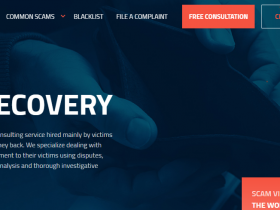If you’ve been a victim of a scam, you’re not alone. The Federal Trade Commission received 2.2 million fraud reports last year alone. That adds up to $3.3 billion lost to scammers. This number doesn’t include incidents of identity theft.
Last year’s numbers are a steep climb from the year before, up from $1.8 billion. That’s why consumers need to be wary now more than ever. Scammers are always the most active after major events, taking advantage of people’s insecurities and charitable intentions.
While there are several agencies you can report a scam to, not all of them will try to recover your funds. Many government agencies get bogged down with millions of complaints. Some don’t have the staff or resources to get your money back quickly.
Funds Recovery Companies
Funds recovery companies exist to help people get their money back from things like tax fraud, Ponzi schemes, and romance scams. They work with you to investigate the crime and find ways to put that money back in your pocket.
The money recovery process begins with gathering evidence. As soon as possible, write down everything you can remember about the scammer. Registration numbers, phone numbers, what they asked for, and how the scammer reached you are all helpful details.
If you reported the scam to any law enforcement agencies, keep records of your report documents too. This information can include police reports, FTC complaints, and documents from your state attorney general’s office.
Next, review your consumer rights. As a victim of a crime, you have certain rights that protect you. You can get this information from the Department of Justice. You can also learn about future scams to avoid.
What to do When You’ve Been Scammed
Contact a recovery company. Share as much information about the scam as you have. Investigators will use their tools and resources to track down legal avenues of recovering your money.
However, you should be wary of recovery companies, too. Sometimes, these companies offer to recover your funds but end up being scams themselves. The best way to avoid a recovery scam is by reaching out to them yourself.
Be on the lookout for agencies that want to charge you upfront fees, discourage you from using other resources, or use aggressive sales tactics. These could all be signs of a recovery scammer. If you begin to feel uncomfortable, you should look for help elsewhere.








Leave a Reply